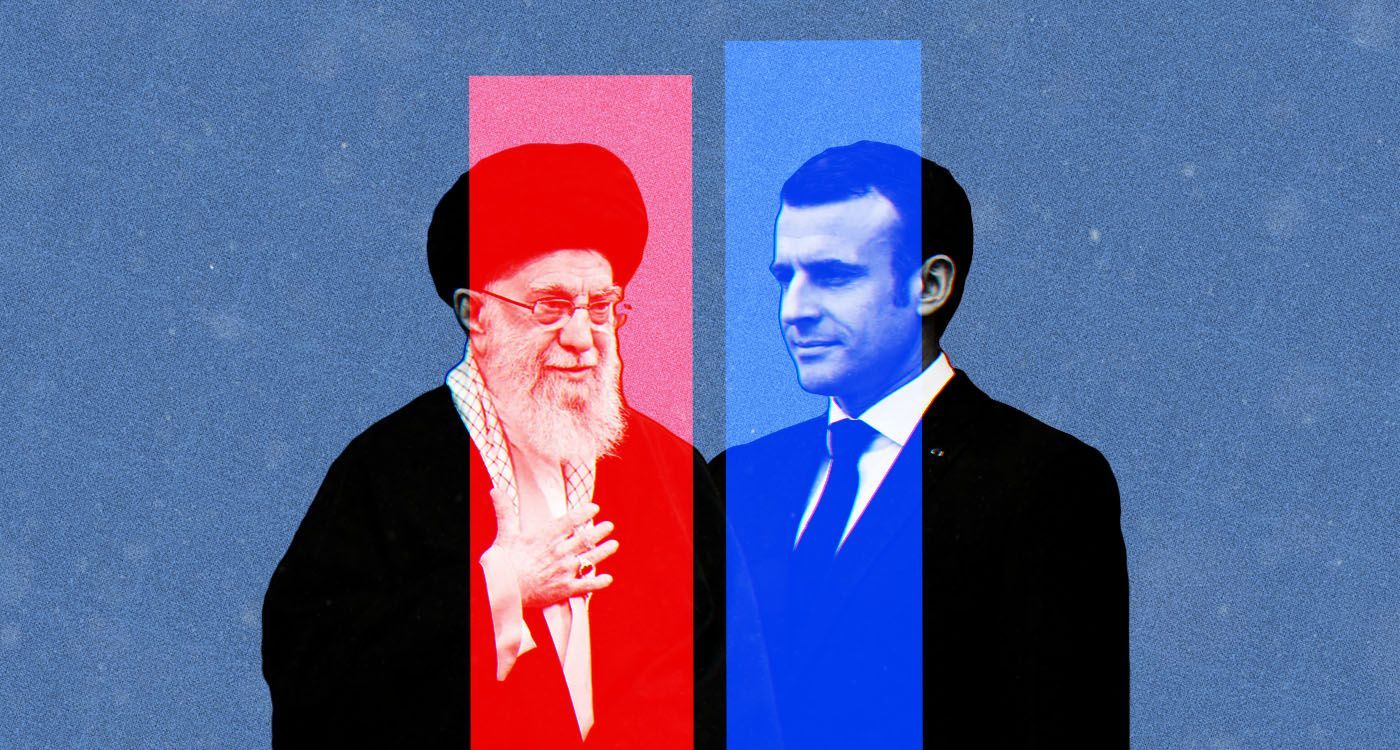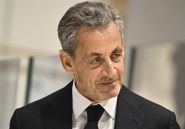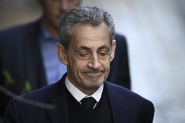- Home
- Middle East
- French-Iranian Relations: Between Rifts and Distrust 2/2

©This is Beirut
Building on long-standing cultural ties, France and Iran have maintained a difficult relationship following the rise of the Islamic Republic and the Iran-Iraq War. However, the issue of nuclear weapons will deepen the rift between the two countries.
Second Rift: The Issue of Iran's Nuclear Program
In the early 2000s, Iran was suspected of secretly pursuing a military nuclear program. France became heavily engaged in negotiations with Iran, aiming to secure an agreement to prevent the development of any military nuclear capabilities. The 2005 revival of Iran's nuclear program under President Ahmadinejad prompted a wave of Western sanctions from the United States, the UN, and the European Union. Under Nicolas Sarkozy, France aligned with the US’ stance on sanctions against Iran, at times adopting even more stringent measures.
"Nicolas Sarkozy adopted the American neoconservative perspective, which views Iran as a threat that must be confronted," says Thierry Coville, a researcher at IRIS and Iran specialist, in an interview with This is Beirut. "From 2007 onwards, Sarkozy urged the European Union to impose sanctions on Iran and, unlike Obama, sought to maintain a hardline stance toward Tehran."
The European and American sanctions led to a sharp decline in Iran’s oil revenues, which accounted for nearly 55% of the country’s total budget in 2011, according to the IMF. Meanwhile, the French automotive sector was forced to cease operations in Iran due to US sanctions, significantly reducing economic exchanges between the two countries.
However, the Obama administration paved the way for the 2015 Vienna Nuclear Agreement, which eased economic sanctions on Iran in exchange for strict controls over its nuclear program, limited to civilian purposes. The US led the negotiations, leaving the French — who were strongly opposed — on the sidelines, a move that angered the Iranians. France, in turn, pushed for the inclusion of a "snapback" mechanism in the 2015 deal, which would automatically restore sanctions if Iran violated the terms of the agreement.
Trade relations between the two countries seemed promising after 2015. French companies signed numerous agreements with Iran, especially in the automotive sector. However, the US withdrawal from the agreement in 2018 dealt a severe blow to French ambitions. According to the economic service of the French embassy in Tehran, France was expected to become the leading foreign investor in Iran.
In contrast, Iran accounted for just 1% of France's trade with the Middle East in 2019, down from 8% the previous year. As a result, France fell to the position of the fourth-largest European supplier to Iran. The French and Europeans will do all they can to salvage the agreement, but their failure to salvage the deal will cost them all credibility in the eyes of Iran.
A French-Iranian Competition in Lebanon
Both key players with ambitions for influence in the Middle East, France and Iran followed their own distinct paths in the region. Driven by its historical ties, France pursued a policy primarily focused on Arab countries, which Iran viewed — whether justifiable or not — as an anti-Iranian stance.
Tehran, backed by its allies in the Middle East, became embroiled in a standoff with Israel and the United States, with France playing only a minor role. While it may have served as an intermediary or facilitator, France did not engage in direct confrontation with Iran. The same applied to Gaza, where France sought to maintain a more moderate position than the United States, which steadfastly supported Israel. "This was where the limits of President Macron’s famous ‘en même temps’ approach became dysfunctional, as France may have seemed unclear," explained David Rigoulet-Roze, editor-in-chief of “Orients stratégiques” and Middle East expert, in an interview with This is Beirut.
"Therefore, there is a continuing decline in France's credibility and influence in the region. This is not solely tied to the current administration; it has been the case for several years now. For better or for worse, France is no longer seen as a key player on the international stage, despite its status as a permanent Security Council member," he adds. "Meanwhile, Iran continues its existential struggle with Israel, and despite exchanges between the Iranian president and his French counterpart, the United States remains the only interlocutor that matters to Iran, as it is they who have the power to be decisive in the conflict."
In Lebanon, however, France and Iran have played active and competing roles. “In Lebanon, there is a sort of game of deception on both sides. Geopolitically, a rivalry exists between France and Iran, as tragically highlighted by the 1983 bombing of the Drakkar, which killed 58 French paratroopers on October 23. The attack was attributed to the Islamic Jihad Organization, a Shiite Islamist group affiliated with Hezbollah and, indirectly, Iran,” explains David Rigoulet-Roze. “France has long-standing historical ties to Lebanon, but so does Iran, even before the establishment of the Islamic Republic in 1979, as some Lebanese Shiite clerics had close ties to Iranian Twelver Shiism,” he adds.
Regarding the ongoing issue of the Lebanese presidential election, France and Iran, through Hezbollah, have engaged in significant negotiations, a reality that has provoked anger from the Lebanese anti-Hezbollah faction. "Some have argued that there was a form of French ambiguity regarding negotiations with Hezbollah, particularly in the selection of candidates for the Lebanese presidency," confirms David Rigoulet-Roze, who believes "this ambiguity was criticized in France, which insisted on the need for a president to be elected, and thus may have implicitly accepted Hezbollah’s role in validating the process." However, the war with Israel has since halted any prospects of electing a president.
According to David Rigoulet-Roze, "In any case, France is not in a position to influence the situation. On the other hand, Tehran, through Hezbollah’s new leader Sheikh Naim Qassem, seems to be considering the possibility of a ceasefire. However, it will not be Tehran that dictates the terms; those will be determined by Israel." "While there may appear to be some convergence between France and Iran — albeit for entirely different reasons — regarding the need to end the war in Lebanon, France alone is certainly not in a position to make it happen. Ultimately, it is Israel, with the support of the United States, that will decide when the war ends," he concludes.
Read more




Comments